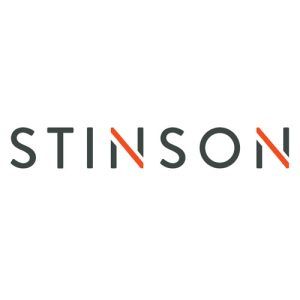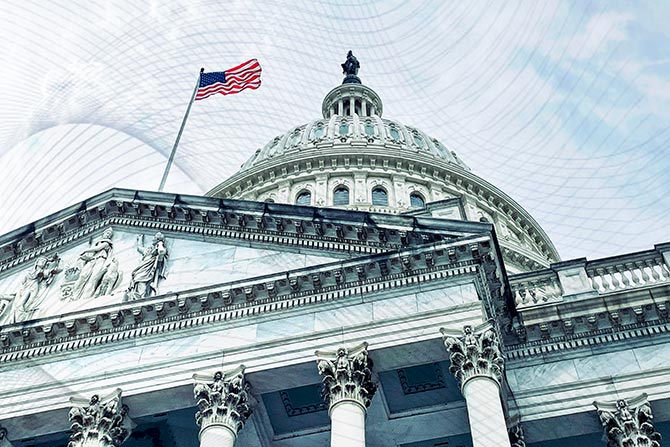Colorado’s billion-dollar cannabis industry could access bank accounts, payroll services, credit card processing and other basic financial services if Congress passes the Secure and Fair Enforcement Regulation (SAFER) Banking Act.
The bill, which the Senate banking committee passed with a bipartisan vote in September 2023, represents a significant step forward for both the cannabis industry and the banking and financial services industry. Seven versions of the SAFER Banking Act have passed the House in the last decade, but this is the first time a version of the bill has made it out of a Senate committee.
U.S. Sens. John Hickenlooper and Michael Bennet are co‑sponsors of the bill.
“Forcing legal cannabis businesses into cash-only operations creates more opportunity for crime,” Hickenlooper said in a statement issued when the SAFER Banking Act passed out of committee. “This vote brings us one step closer to the entire nation following Colorado’s lead.”
Colorado cannabis businesses celebrated the 10th anniversary of legal recreation sales earlier this year. Although medical and retail marijuana sales decreased slightly in 2023, according to the Colorado Department of Revenue, Colorado sales still exceeded $1.5 billion in 2023. Thirty-eight states and the District of Columbia now allow the medical use of cannabis products, while 24 states and D.C. also allow some form of recreational use.
But marijuana businesses still cannot access basic financial services because cannabis remains a Schedule I drug under the Controlled Substances Act (CSA). Banks risk violating federal money laundering and forfeiture laws by lending to state-legal cannabis businesses. Beyond the obvious benefits for growers, retailers and others directly involved with the cannabis industry, the SAFER Banking Act would help financial institutions navigate the precarious issues related to banking marijuana-related businesses for the first time.
Perils Addressed
In Denver, cannabis businesses are as common as coffee shops, but the current all-cash model makes them targets for theft, tax evasion and organized crime. The problem is so prevalent that in 2021, the marijuana lobbying group, Americans for Safe Access, put out a “Robbery Preparedness Guide” for cannabis businesses. In 2022, burglary or attempted burglary constituted 96% of all cannabis industry-related offenses in Denver.
For banks, the risks are also significant. According to the American Bankers Association, banks do not have to provide services directly to the cannabis industry to run afoul of federal drug laws. There are also attendant risks to providing banking services to vendors, landlords and employees indirectly related to the cannabis industry that are often difficult to identify. For example, if a bank provides a commercial loan on a property that is later rented to a cannabis industry-related business, it could put the bank’s federal deposit insurance at risk.
In addition to helping protect cannabis businesses, employees and customers by providing them access to banking services, the SAFER Banking Act would extend protections to banks and financial institutions that do business with the state-legal marijuana industry, including:
- Provide a safe harbor for depository institutions who provide financial services to legal cannabis-related businesses by precluding federal banking regulators from inhibiting those services.
- Remove any requirement to treat the proceeds of transactions conducted by cannabis-related businesses, which are operating in accordance with Colorado cannabis laws, as proceeds from an unlawful activity for purposes of taxation.
- Protect financial institution employees from being held personally liable under federal law or regulation.
- Grant power to the Financial Crimes Enforcement Network (FinCEN) to amend the requirements under which depository institutions are required to provide suspicious activity reports.
- Add protections for ancillary businesses providing products or services to legitimate cannabis-related businesses.
Importantly, the SAFER Banking Act would not compel any financial institution or insurer to do business with the cannabis industry. Colorado banks could still choose whether to offer financial products or services to marijuana businesses.
How To Prepare
Financial institutions currently need significant expertise in state marijuana laws and the marijuana business environment to provide services to the cannabis industry. The only guidance comes from the 2013 and 2014 Cole memorandums, Obama-era Department of Justice (DOJ) communiques to U.S. attorneys deprioritizing federal marijuana prohibitions in legal states, and an attendant FinCEN memorandum. Per these memos, banks that do business with the cannabis industry must perform initial and ongoing customer due diligence, file suspicious activity reporters on marijuana businesses, even in legal states, as well as comply with all currency transaction reporting requirements.
If the SAFER Banking Act becomes law, this guidance will be updated within one year of enactment “to ensure consistency with the purpose and intent of the Secure And Fair Enforcement Regulation Banking Act, and the amendments made by that Act, and that such guidance ensures that a financial institution, and any director, officer, employee, or agent of a financial institution, continues to report suspicious transactions pursuant to this subsection, as applicable, relating to State-sanctioned marijuana businesses and service providers to preserve the ability of the Financial Crimes Enforcement Network to prevent and combat illicit activity.”
Given that marijuana is big business in Colorado, some banks may not wait for new FinCEN guidelines to begin offering financial services to the cannabis industry in order to get in before market saturation. To mitigate risk, these banks will need to train employees in cannabis-related business operations, the initial FinCEN memo, the two Cole memo enforcement priorities, applicable state law as well as identification of red flags.
Access to Bankruptcy Courts Remains in Question
Currently, cannabis-related businesses are denied access to important federal legal rights because they are in violation of the CSA, the most significant of these is federal bankruptcy protection. U.S. bankruptcy courts have uniformly denied relief for these enterprises. As part of the DOJ, the U.S. Trustee is compelled to enforce federal law. Accordingly, the U.S. Trustee will generally move to dismiss any bankruptcy case where a debtor is a cannabis-related business. Furthermore, bankruptcy courts cannot confirm reorganization or liquidation plans that include violations of federal criminal law.
The DOJ’s approach in the bankruptcy context contrasts with its relative leniency with respect to prosecuting violations of the CSA that otherwise comply with state law. As such, distressed cannabis companies that seek a structured wind-down or reorganization are forced to find state law alternatives, such as receiverships. There has, however, been some expanding openness to providing relief under the bankruptcy code to ancillary businesses in the cannabis industry and to entities that are no longer directly engaged in the industry.
In 2023, the United States Bankruptcy Court for the Central District of California held that The Hacienda Company LLC (Hacienda), a “former” cannabis company that terminated its wholesale manufacturing and packaging business prior to filing its Chapter 11 bankruptcy petition, could sell its ownership interests in an acquiring company to pay creditors (See In re The Hacienda Company LLC, Case No. 2:22-bk-15163-NB, 674 B.R. 748, 756 (Bankr. C.D. Cal. 2023)). When the U.S. Trustee then filed a second motion to dismiss, this was again denied by the court. “Congress has shown a willingness to avoid punishing a debtor that may have violated law when ‘the real victims would be innocent creditors,’” per the court. Until potentially reversed on appeal, Hacienda may be cited by other bankruptcy courts to permit debtors to use the Bankruptcy Code to liquidate assets of a non-operating cannabis business.
The SAFER Banking Act does not specifically address the bankruptcy code, nor does it change marijuana’s classification under the federal CSA. However, its passage may continue to soften bankruptcy courts’ view on cannabis-related enterprises as legitimate businesses.
Only the First Step
As both the cannabis industry and the banking and financial services industry closely watch the progress of the SAFER Banking Act in Congress, it’s important to note that this legislation is not comprehensive cannabis reform. It does not make cannabis federally legal, nor does it address taxation issues that have plagued dispensaries and other marijuana businesses. As such, more cautious financial institutions may opt out entirely. Still, institutions deciding against should nevertheless implement rigorous onboarding and ongoing monitoring protocols to avoid inadvertent failure to identify and avoid cannabis-related customers.
But should the SAFER Banking Act become law, there will be an increased recognition of the disconnect between federal laws and services that are currently unavailable to legally-operating cannabis businesses. Though the bill still faces significant hurdles in securing enough votes in the Senate, its progress out of committee represents an increased willingness by Congress to consider issues related to state-legal cannabis businesses. In Colorado and other states where cannabis has become a billion-dollar industry, bankers should closely watch the progress of the SAFER Banking Act.
Mark Bell is a partner in the Denver office of Stinson LLP.









